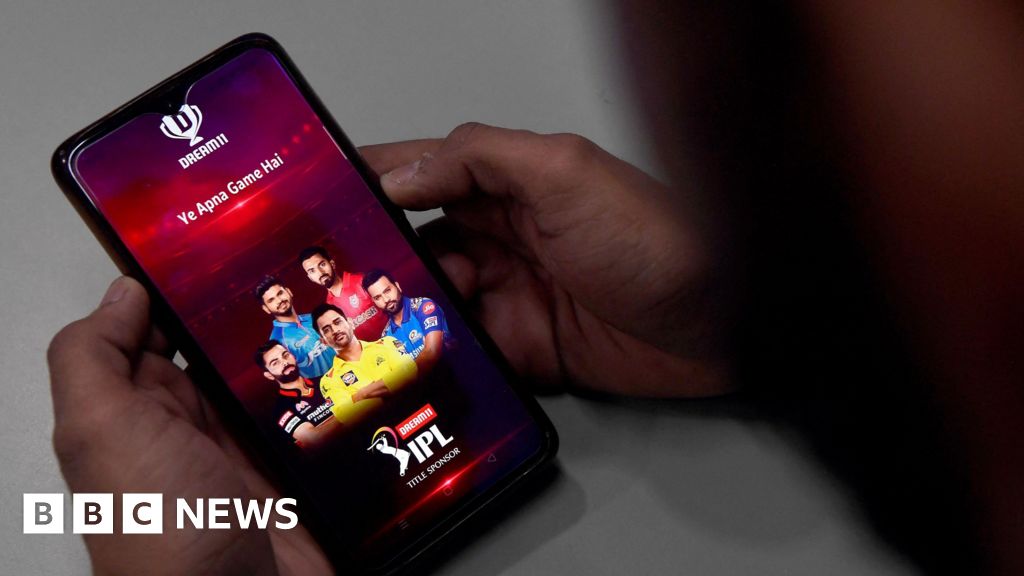Kartik Srinivas (name changed) still flinches at the mention of online betting. What began as a thrill to earn a quick buck spiraled into a five-year addiction that cost the 26-year-old his savings, peace of mind, and nearly his future.
Between 2019 and 2024, Srinivas lost more than 1.5 million rupees ($17,000; £13,000). The money included three years of his earnings, savings, and loans from friends and family.
By 2024, he was neck-deep in losses. Srinivas' story reflects the darker side of India's once booming Real Money Games (RMG) industry - where players use online platforms to bet cash on poker, fantasy sports, and other games.
Days ago, India passed a bill to outlaw these games, arguing they had become increasingly addictive and were leading to financial distress among people.
The new law makes offering or enabling such services punishable with a jail term of up to three years and a fine of up to 10 million rupees. Promoting them carries penalties of two years and five million rupees, though users are treated as victims, not offenders.
Federal IT Minister Ashwini Vaishnaw claimed online money games had harmed 450 million Indians, causing losses upwards of 200 billion rupees and triggering depression and suicides among many.
However, the industry has criticized the ban as a knee-jerk reaction that could harm a sector that provided 400 startups, generated nearly $2.3 billion in annual taxes, and supported more than 200,000 jobs.
Companies like Dream11 and My11Circle have been particularly affected, having to shut their operations. The law also fails to distinguish between 'games of skill' and 'games of chance,' impacting the perceived legitimacy of many popular gaming platforms.
While the move aims to prevent gambling addiction, critics warn it could push users towards unregulated and potentially harmful betting practices, leading to more significant issues for those it seeks to protect.
Between 2019 and 2024, Srinivas lost more than 1.5 million rupees ($17,000; £13,000). The money included three years of his earnings, savings, and loans from friends and family.
By 2024, he was neck-deep in losses. Srinivas' story reflects the darker side of India's once booming Real Money Games (RMG) industry - where players use online platforms to bet cash on poker, fantasy sports, and other games.
Days ago, India passed a bill to outlaw these games, arguing they had become increasingly addictive and were leading to financial distress among people.
The new law makes offering or enabling such services punishable with a jail term of up to three years and a fine of up to 10 million rupees. Promoting them carries penalties of two years and five million rupees, though users are treated as victims, not offenders.
Federal IT Minister Ashwini Vaishnaw claimed online money games had harmed 450 million Indians, causing losses upwards of 200 billion rupees and triggering depression and suicides among many.
However, the industry has criticized the ban as a knee-jerk reaction that could harm a sector that provided 400 startups, generated nearly $2.3 billion in annual taxes, and supported more than 200,000 jobs.
Companies like Dream11 and My11Circle have been particularly affected, having to shut their operations. The law also fails to distinguish between 'games of skill' and 'games of chance,' impacting the perceived legitimacy of many popular gaming platforms.
While the move aims to prevent gambling addiction, critics warn it could push users towards unregulated and potentially harmful betting practices, leading to more significant issues for those it seeks to protect.





















